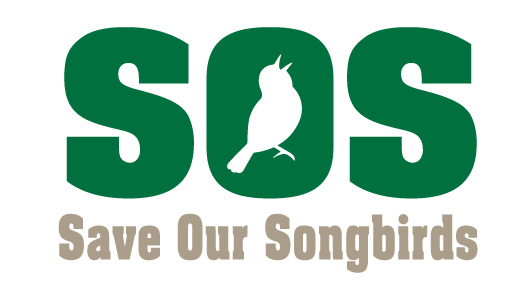Bird-safe window treatments installed at Henry Vilas Zoo’s iconic carousel building
Video editing by Matt Schaser
SOS Save Our Songbirds sparks project to prevent birds flying into windows
MADISON – Migrating birds will notice the new bird-safe glass on Henry Vilas Zoo’s iconic carousel building even if the kids don’t as they whirl by on wooden camels, penguins and zebras.
Feather Friendly window collision products were installed on two of the building’s four glass panels in August to warn birds away from colliding with the glass. The material is donated by Feather Friendly Technologies, the manufacturer of the treatment, and by SOS Save Our Songbirds, a Wisconsin campaign to spur action at home to help declining songbirds.
The treatment came after volunteers for Southern Wisconsin Bird Alliance monitoring zoo buildings for bird-window collisions in the spring found dead birds at the carousel.
“I’m excited to get the treatment up before fall migration,” says Zoo Conservation Education Coordinator Jess Thompson.
“We are incredibly grateful to both Feather Friendly and SOS Save Our Songbirds for these donations, which will go a long way towards helping us meet our shared goals of protecting wildlife.”
Feather Friendly Vice President Paul Groleau said the company is pleased to participate in this project with Henry Vilas Zoo and SOS Save Our Songbirds. “We commend the Zoo for its commitment to ongoing education and conservation, including the global issue of bird collisions.”
New research shows 3.5 billion birds die every year in the U.S. after colliding with windows, far more than previously thought. As much as 70% of birds stunned after hitting windows will die of their injuries, the researchers showed.
Treating the glass panels at the Conservation Carousel building will immediately benefit birds and help educate zoo visitors about bird-window collisions and how they can prevent them at home, Thompson says.
“This is a group effort,” she says. “We at the zoo are doing what we can but we can’t do it without everybody else. We want our birds to be safe throughout the community.”
Why glass is so deadly to birds
Glass windows are invisible and deadly to birds. They see reflections of trees, plants and sky — or see such habitat through a window on the other side of a building — try to fly to that habitat and hit the glass.
The Feather Friendly treatment installed at the zoo is a film applied to the outside of the carousel building glass which, when peeled back, leaves behind a grid of dots 2 inches apart that birds can see.
The treatments are one fruit of a partnership hatched in fall 2023 as the zoo works to meet North American Songbird SAFE program requirements. Thompson contacted SOS Save Our Songbirds about partnering to meet shared goals and the subsequent meeting with key zoo staff, SOS, and Southern Wisconsin Bird Alliance, led to the zoo’s participation in the alliance’s Bird Collision Corps monitoring program for the first time in spring 2024.
Volunteers’ rounds during bird migration document which zoo windows are the biggest problem for birds
Volunteers walked the zoo campus early in the morning for six weeks during spring bird migration, looking for dead birds or other signs birds hit windows. BCC volunteers found 10 dead birds during the monitoring period, the most at the Conservation Carousel. “It wasn’t a big surprise but it was good to have the data,” Thompson says.
The zoo will treat other windows where volunteers found dead birds, and incorporate lessons learned in future projects. “We’re in construction planning for the new giraffe building so we’re able to talk about being bird-safe ahead of time,” Thompson says. “As we educate ourselves, we’ve been able to think about, ‘how can we build bird-safe glass or design into new exhibitions and new buildings.’”
SOS Save Our Songbirds Coordinator Lisa Gaumnitz says the zoo’s proactive treatment of the carousel windows can translate into even greater gains for local birds, noting that more than 750,000 people visit the county-owned zoo every year.
“People from all over Dane County and the region visit Henry Vilas Zoo, and we’re thrilled they’ll get to see the window treatments and educational materials on the carousel glass,” she says. “We hope people get inspired to take action at home. Together, we can save our songbirds!”
